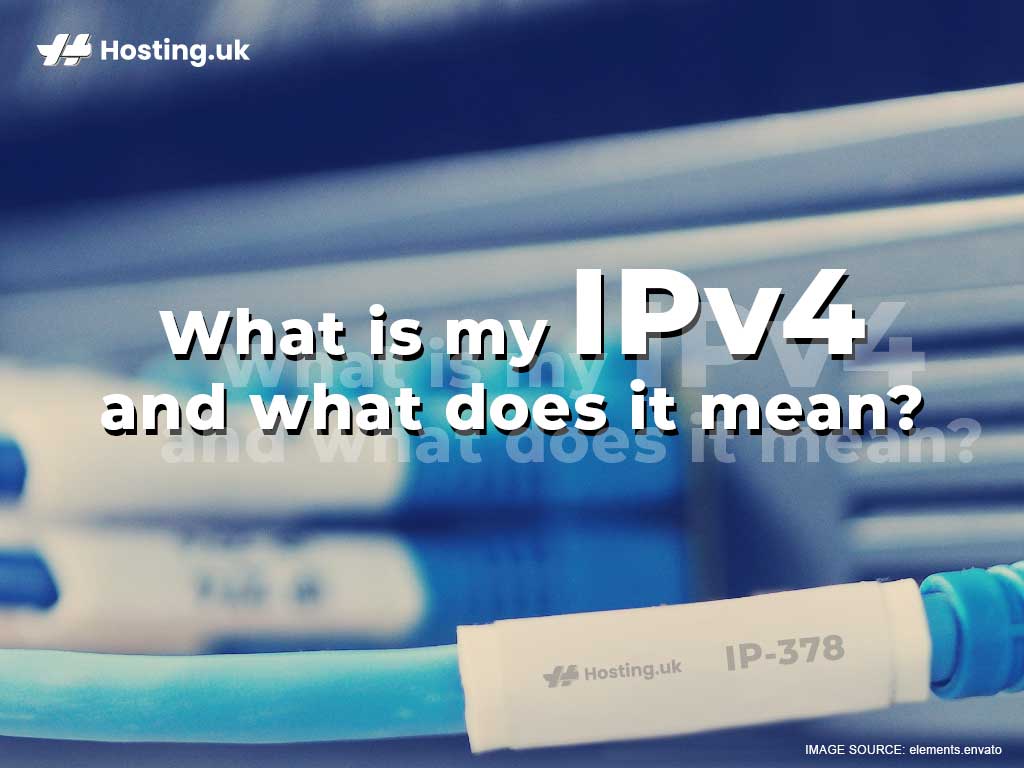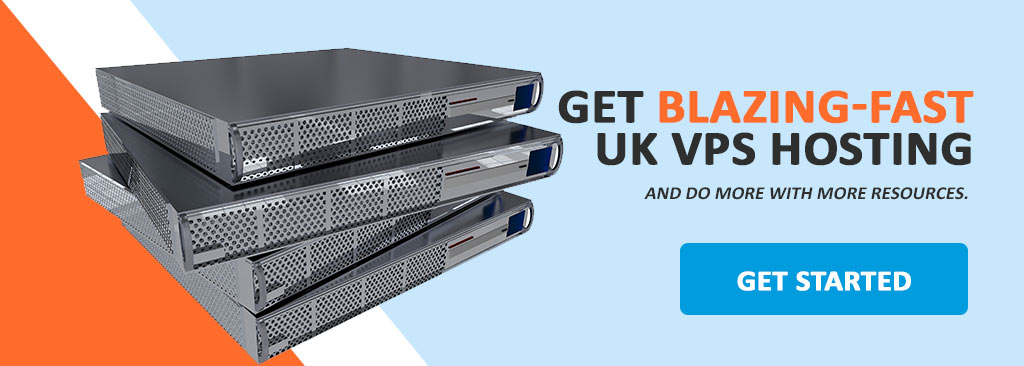When we tell people they get their own IPv4 when they choose VPS hosting, we pretty much get one of two responses. We either hear: “Seriously? That’s amazing!”, or “… What is my IPv4 address, what is VPS hosting, and why do I need my own IPv4?”
If you fall into the second group, this article is for you. By the time you get to the end of it, you’ll know more about IPv4 addresses and VPS hosting than you were strictly sure you needed to.
Let’s dive in, shall we?
Table of Contents
5 IPv4 Questions and Answers
1. What is my IPv4?
Your IPv4, or IPv4 address, is one possible version of your Internet Protocol (IP) address.
We’ll explain.
Every device that’s connected to the internet has an IP address, and so does every website. Your website’s domain name is your website’s address, written in words so that people can find it. For example, our domain name is hosting.co.uk.
But machines like your computer don’t typically store information in words. They store information in numbers. That’s why every website has an IP address.

Your website’s IP address is a series of numbers and periods that usually looks something like this: 255.255.245.0. Your website’s IP address helps computers find your website. (This has been compared to a telephone book that helps you find people’s phone numbers, but we’re avoiding that analogy, since we’re not even sure anyone uses phone books anymore.)
Now for your IPv4:
The IPv4 is a particular format for IP addresses that assigns them a 32-bit number. That’s really all you need to know about it for now: An IPv4 is essentially just your IP address. It’s just the specific way of writing your IP address to differentiate it from the other format for IP addresses, IPv6.
2. Who gives out IP addresses?

IP addresses are managed globally by the Internet Assigned Numbers Authority (IANA), which has five Regional Internet Registries (RIRs) connected to different regions. Each RIR distributes IP addresses to Internet Service Providers, which distribute them to users like you.
3. If I have shared hosting, what is my IPv4?
If you have absolutely no idea what shared hosting has to do with an IP address, we need to backtrack a bit to explain shared hosting, which is a category of web hosting.
Anybody who wants to create a website will need web hosting. That’s because every website on the internet is stored on a server. Servers are expensive to buy and time-consuming to maintain, so most people can’t justify the expense of buying them or the time it takes to keep them working in tip-top condition. That’s what web hosting is for. Our web hosting company owns fast servers that we work 24/7 to keep in excellent condition, so you never have to worry about servers. For a small monthly fee, we let you host your website on one of our servers.
Shared hosting is usually the most affordable kind of web hosting that’s offered by any web hosting company. (Shared hosting plans start at £2.40/mo).
Here’s why shared hosting is so affordable: With shared hosting, your website shares a server with other websites. This means that instead of having you foot the whole bill for maintaining the server, the cost is spread between you and all the other website owners using the server. That means that each person pays a lower fraction of the cost.
And this brings us back to what web hosting has to do with IP addresses.
Remember earlier, how we said that every device that’s connected to the internet has an IP address? Well, that goes for servers, too.
When you share a server with other websites, you’re not just sharing the cost of operating the server. You’re also sharing the server’s IP address.
So, if you want your own IP address, you might not be very happy with shared hosting.
4. What is my IPv4’s purpose?
Your IPv4 (or your IP address) makes it easy for computers on other networks to find your computer or website. That’s why IP addresses are so important for anything you want to do on the internet.
If you want to find a website, your computer needs to know the IP address of that website. If you want other people to find your website, their devices need to know your IP address. This process is so quick and subtle that most of the time, we don’t need to know our own IP address, let alone whether we share it with anyone else.
But there are reasons why you might not want to share an IP address.
5. Why do I want my own IP address?

Although you can usually get away with sharing an IP address, here are some reasons why you might want your own dedicated IP address:
- Shared IP addresses are more easily marked as spam: If you want to use your website to run email marketing campaigns, you’ll be better off having your own IPv4 address. That’s because one of the major factors in determining which emails get marked as spam is the IP address. So, if emails from one of the websites on your shared server get marked as spam, your emails are more likely to be marked as spam.
- Some third-party apps require a dedicated IP address: Not all apps require a dedicated IP address, but you never know when you might want to use one that Having your own IP address means you never have to worry about this problem.
- Having your own IP address protects you from IP banning: If one of the websites on your shared server gets the IP address banned, your website will be affected, too. A dedicated IP address is the best way to prevent this.
Own your IP address with VPS hosting
You probably already know that you get your own IP address when you get dedicated hosting. Dedicated hosting is our premium service, which also means it’s our most expensive hosting option. You get your own IP address with dedicated hosting because with dedicated hosting, your website is the only one stored on the server, so naturally, your website will have its own IP address.
But you don’t have to pay dedicated-hosting prices just because you want your own IP address. When you choose one of our VPS hosting services, you get two IPv4 addresses.
Here’s why VPS hosting gives you your own IP addresses for a fraction of the price of dedicated hosting:
VPS hosting (Virtual Private Server hosting) means that one server is separated into different private servers using virtualisation technology. So, you still share the costs of operating the server, which drives down the price. But because each division of the server acts like its own independent unit, you can customise each server without affecting the others. This means you get to enjoy things like having a different operating system for your own Virtual Private Server and having your own IP address.
A VPS is great for high-traffic websites, websites that handle sensitive information, and so much more! The fact that you get your own IP address is just one of the many reasons to choose VPS hosting.
Wrapping up
This guide was a bit of an info-dump, so you might want to bookmark it, so you can take some time to go over it at your own pace. To help you out, here’s a quick bulleted list of some of the main takeaways:
- Your IPv4 is the same as your IP address.
- Your IP address helps computers find your website.
- Having your own IP address gives you more control over the reputation of your website and makes it easier to have effective email marketing campaigns.
- VPS hosting is a great way to have your own IP address without paying the premium prices of dedicated hosting.
Get started with a high-velocity VPS to accelerate your business to the next level. Click here to choose your VPS hosting plan.

